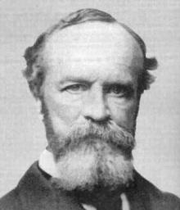
Meliorism
Encyclopedia

Meliorism is an idea in metaphysical
Metaphysics
Metaphysics is a branch of philosophy concerned with explaining the fundamental nature of being and the world, although the term is not easily defined. Traditionally, metaphysics attempts to answer two basic questions in the broadest possible terms:...
thinking holding that progress is a real concept leading to an improvement of the world. It holds that humans can, through their interference with processes that would otherwise be natural, produce an outcome which is an improvement over the aforementioned natural one.
Meliorism, as a conception of the person and society, is at the foundation of contemporary liberal democracy
Liberal democracy
Liberal democracy, also known as constitutional democracy, is a common form of representative democracy. According to the principles of liberal democracy, elections should be free and fair, and the political process should be competitive...
and human rights
Human rights
Human rights are "commonly understood as inalienable fundamental rights to which a person is inherently entitled simply because she or he is a human being." Human rights are thus conceived as universal and egalitarian . These rights may exist as natural rights or as legal rights, in both national...
and is a basic component of liberalism
Liberalism
Liberalism is the belief in the importance of liberty and equal rights. Liberals espouse a wide array of views depending on their understanding of these principles, but generally, liberals support ideas such as constitutionalism, liberal democracy, free and fair elections, human rights,...
.
Another important understanding of the meliorist tradition comes from the American Pragmatic tradition. One can read about it in the works of Lester Frank Ward
Lester Frank Ward
Lester F. Ward was an American botanist, paleontologist, and sociologist. He served as the first president of the American Sociological Association.-Biography:...
, William James
William James
William James was a pioneering American psychologist and philosopher who was trained as a physician. He wrote influential books on the young science of psychology, educational psychology, psychology of religious experience and mysticism, and on the philosophy of pragmatism...
, Ralph Nader
Ralph Nader
Ralph Nader is an American political activist, as well as an author, lecturer, and attorney. Areas of particular concern to Nader include consumer protection, humanitarianism, environmentalism, and democratic government....
, and John Dewey
John Dewey
John Dewey was an American philosopher, psychologist and educational reformer whose ideas have been influential in education and social reform. Dewey was an important early developer of the philosophy of pragmatism and one of the founders of functional psychology...
.
Meliorism has also been used by Arthur Caplan
Arthur Caplan
Arthur L. Caplan, Ph.D., is Emmanuel and Robert Hart Professor of Bioethics and director of the Center for Bioethics at the University of Pennsylvania. Prior to coming to Penn in 1994, Caplan taught at the University of Minnesota, the University of Pittsburgh, and Columbia University. He was the...
to describe positions in bioethics
Bioethics
Bioethics is the study of controversial ethics brought about by advances in biology and medicine. Bioethicists are concerned with the ethical questions that arise in the relationships among life sciences, biotechnology, medicine, politics, law, and philosophy....
that are in favor of ameliorating conditions which cause suffering, even if the conditions have long existed (e.g. being in favor of cures for common diseases, being in favor of serious anti-aging therapies as they are developed).
See also
- Techno-progressivismTechno-progressivismTechno-progressivism, technoprogressivism, tech-progressivism or techprogressivism is a stance of active support for the convergence of technological change and social change...
- ExtropianismExtropianismExtropianism, also referred to as the philosophy of "Extropy", is an evolving framework of values and standards for continuously improving the human condition....
- The Ultimate ResourceThe Ultimate ResourceThe Ultimate Resource is a 1981 book written by Julian Lincoln Simon challenging the notion that humanity was running out of natural resources...
- TeleologyTeleologyA teleology is any philosophical account which holds that final causes exist in nature, meaning that design and purpose analogous to that found in human actions are inherent also in the rest of nature. The word comes from the Greek τέλος, telos; root: τελε-, "end, purpose...
- TranshumanismTranshumanismTranshumanism, often abbreviated as H+ or h+, is an international intellectual and cultural movement that affirms the possibility and desirability of fundamentally transforming the human condition by developing and making widely available technologies to eliminate aging and to greatly enhance human...
External links
- Graebner, Norman, "The Limits of Meliorism in Foreign Affairs", Virginia Quarterly Review, Winter 2000

